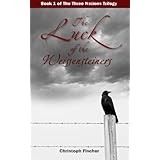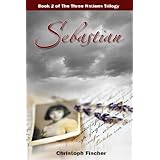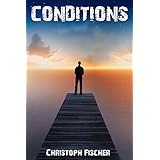I’ve been seeing a lot of mentions recently of the forthcoming Tenby Book Fair. Judith Barrow is running a series of interviews on her excellent blog with some of the authors who are attending. Taking place on 24th September this year, the event has its own website, and is featured on the Tenby Arts Festival website as its first event.
I’m delighted that the organisers – Judith Barrow, Thorne Moore and Alex Martin – agreed to join me on Being Anne to tell us more about it…
 |
| L-R; Alex, Judith and Thorne |
Judith, Thorne and Alex, welcome to Being Anne. I already know you all as novelists, but would you like to introduce yourselves?
Judith: Thank you Anne, we’re so pleased to be here. My name is Judith Barrow; I was born and brought up in a small village on the edge of the Pennine moors in Yorkshire but moved in 1978 to live in Pembrokeshire, West Wales. I had the first of my trilogy, Pattern of Shadows, published in 2010, the sequel, Changing Patterns, in 2013 and the last, Living in the Shadows in 2015. All by Honno. I’m now writing the prequel.
Thorne: My name is Thorne Moore. I was born in Luton but now live on the edge of a village in North Pembrokeshire. I write “domestic noir” crime mysteries and I have had three novels published by Honno: A Time For Silence (2012),Motherlove (2015) and The Unravelling (2016). I am currently working on another novel set in Pembrokeshire.
Alex: My name is Alex Martin. I live on the Gower Peninsula, in south Wales and also spend a lot of time in France, which I also love. I have written The Katherine Wheel Series, currently 3 books, Daffodils, Peace Lily and Speedwell with a fourth planned next year. They are based around WW1 and the social changes it evoked. My first book is based in France on my own grape-picking experience in the 1980’s. The Twisted Vine is more of a mystery story. I hope to publish The Rose Trail, a time slip ghost story, later this year.
Ah, I had the pleasure of reviewing Thorne’s The Unravelling this week – and yours are nearly at the top of my pile, Judith! Mmm, rather like the look of Alex’s too…
But we’re not here to talk about your books. We’re talking about the Tenby Book Fair that takes place on 24th September. How did you get involved in the organisation?
Judith: I had the idea of holding a Book Fair five years ago and approached the Tenby Arts Festival Committee to see if there was any room in the programme for me. Initially there wasn’t and I decided to hold the Book Fair in the local library. Then they found me a two hour slot; the first event of the Festival, always held in St Mary’s Church House. Since then Thorne and Alex have worked alongside me at the subsequent Book Fairs. And we’ve been given more time.
Thorne: I joined up, enthusiastically, after attending Judith’s second fair. It was wonderful to find an outlet where authors could get together and meet the public. I’m delighted it’s beginning to feel like a permanent fixture.
Alex: I met Judith through Twitter, strangely enough! And had just published my first book, I was thrilled to attend my first book fair as an author and meet other kindred spirits. I’ve loved being involved in subsequent Book Fairs at Tenby and deepening my friendship with both Thorne and Judith has been a delight.
A little like herding cats though, maybe? What have been the particular challenges?
Judith: For me, at first, it was the sheer amount of work, time and effort it took to arrange; the publicity; getting the word out about the event, finding authors, making sure the authors were happy with their placings in the room. All sorts of little problems. It was a great relief when Thorne and Alex offered their help with future Book Fairs. I made the mistake of offering the public a choice of two free second hand books at the first Book Fair for every one of bought, author-signed new book. The idea didn’t work, either for the public or the authors. A couple of years ago we also gave the authors the chance to give a talk about their work while the Book Fair was going on. People who would have come into the event walked away, reluctant to interrupt. We also had a couple of authors who were, shall we say, a little long-winded and the audience became very restless.
Thorne: I think we’re getting the hang of it now. Coming up with creative ideas for the publicity has been good fun.
Alex: I was in charge of the music and learned just how much classical music swells and ebbs in volume – sometimes downing out constructive conversation so was constantly twiddling knobs behind the stage. We’ve learned a lot too about the flow of customer traffic through the doors and how to manage it. It’s been fascinating but the footfall last year confirmed we’re ironing out the glitches nicely.
I know this is the fifth Tenby Book Fair – how many publishers and authors will be involved this year?
Judith: We have twenty-five authors and three publishers; two traditional and one a cooperative.
Thorne: Yes, we are just about at capacity in Church House, but it’s great to have such a wide range, covering all genres, from children’s books to thrillers and biographies. The presence of publishers is a new thing this year, as we want the fair to be about books from everyone’s point of view – readers and would-be authors.
Alex: The increasing size and popularity of the Tenby Book Fair makes the hard work very worthwhile and is increasingly satisfying.
And what can people expect on the day?
Judith: Besides the authors signing their books and chatting about their work, we have a few talks by authors, a poetry reading and the publishers will be talking about themselves and the kind of submissions they are looking for. The cooperative publishers will be talking about the services they offer. We’ll have a separate room for these talks etc.
I notice there are a few competitions too…
Judith: Three competitions in all. A little bit of advertising here:
Children’s Competition
For entrants aged 7 – 12, an essay (one page) entitled: My Favourite Character.
Write about a character in a book that you like. Is he or she clever? Brave? Funny? Or just get to do all the things you’d like to do.
Include your name and age on the sheet and a way of contacting you – it can be your address, or your school, or a phone number – so we can tell you if you’ve won.
Hand your entry in to any library in Pembrokeshire, or post it to:
Tenby Book Fair, Saddleworth House, Carmarthen Road, Kilgetty, SA68 0XX
Send it by August 13th, 2016
Collections of books are very generously being donated as prizes by Firefly Press.
A winner and a runner-up will be chosen from each of two age groups: 7-9 and 10-12. Prizes will be presented at the Book Fair in St Mary’s Church House.
Young Adult Flash Fiction Competition
For entrants aged 12 – 18, a 100 word Creepy Tale.
You could write “A Creepy Tale,” about ghosts, vampires, zombies, the supernatural or anything that might give you the shivers. But can you write it in 100 words or less? That’s the challenge in this competition. A full story, in 100 words or less.
Include your name, age and contact details (address, phone number or email address) with the entry, and post it to: Tenby Book Fair, Saddleworth House, Carmarthen Road, Kilgetty, SA68 0XX OR paste it into the body of an email to thornemoore@btinternet.com with “Flash Fiction” in the subject line.
The closing date is August 13th 2016.
First Prize £15 book token. 2 runners-up: £5 book token.
Prizes sponsored by Cambria Publishing Co-operative
Short Story Competition
For entrants 18 and over: a short story, “The Bag Lady.”
Entry Fee £3. Send cheque, made payable to “Tenby Book Fair” with your entry, or pay on-line, via PayPal (link on Tenby Book Fair website).
Write a short story of 2000 words or less, entitled “The Bag Lady”. How you interpret the title is up to you.
Include name and preferred contact details (address, phone number or email address) and post to: Tenby Book Fair, Saddleworth House, Carmarthen Road, Kilgetty, SA68 0XX or send as a Word or Rich Text Format document, attached to an email to:thornemoore@btinternet.com including “Short Story” in the subject line.
Closing date: 13th August 2016.
First Prize £25 Second prize £10 Third Prize £5.
The prizes are donated by Cambria Publishing Co-operative
All three winning stories will be published on the Tenby Book Fair website and on http://showboat.tv/
People particularly mention the good vibe and great buzz of previous years – that must be something you’re proud of…
Judith: We all are, I think. We delegate the work between us. I find the authors mainly, keep in touch with them all, let them know how we’re progressing and interview them for the website. Thorne works on the leaflets, posters and website and Alex manages the press and other publicity. On the day we set up and generally share anything that crops up. It’s a friendly and hugely satisfying partnership.
Alex: I can second that. Although commitments mean I can’t attend on the actual day this year, I’ve thoroughly enjoyed being involved in the preparation.
Tenby was where I spent my childhood holidays – I had no idea it had such a thriving arts scene, or the popular Arts Festival that the book fair is part of. Where does the Book Fair audience come from? Mainly local people, or visitors?
Judith: The Tenby Arts Festival in September has been going for a long time. They mainly cover all forms of music; choirs, soloists, instrumental. They hold talks on local history and artists and have an open mic poetry session. Various things like that. They also have a children’s sandcastle competition. And, of course the Book Fair. There are also a few musical events, film-showings in a local hotel and there are always events happening at the local Tenby Museum in the summer months. We have a lot of local visitors who come to our book fair and have it marked in their diaries, but we also have many visitors from round the country, visiting Tenby for the Arts Festival.
I’m a little out of touch with the Welsh book scene too, although I do (of course) know about the wonderfulHonno Welsh Women’s Press. Tell me a little more about the publishers involved in the fair.
Judith: There are two other publishers besides Honno Welsh Women’s Press at this year’s Book Fair. Firefly is a press for children’s and young adults’ books, which started up in 2013 and is already winning awards. Cambria is a publishing co-operative, offering a range of services and help for those preferring to go it alone.
And some of the more well-known authors?
Judith: We have such a range and many of them are well-known within their own genres, like Sally Spedding, author of seriously chilling thrillers, or Colin Parsons, the children’s writer. Phil Carradice has written over fifty books. Others are new arrivals on the scene, but sure to be rising stars, like Matt Johnson, whose first novel, Wicked Game, is already soaring.
Other than the moment when the doors close on a perfect day, what are you particularly looking forward to on the day?
Judith: Meeting the authors. Some of them have been coming to the Book Fairs from the beginning and are old friends. Meeting new faces and potential friends. The buzz when people start to come in. Watching the faces of readers as they interact with the authors. It’s a great atmosphere. And seeing the video and photos of the Book Fair, taken by http://showboat.tv/, friends of ours who always film the Book Fairs.
Alex: I shall be there in spirit with only my books to represent me, but will be willing everyone on and am confident it will be more popular than ever.
And you’ll be doing it again, next year…?
Judith: Ah, well… next year will be different for us. The Book Fair will be part of a new venture. A group of us, including Thorne and Alex, will be forming the TenbyLitFest in June for three days 16th – 18th, and the book fair will be held on the Saturday (17th), in a larger venue, with even more authors attending. There will be a host of other events, including aMeet the Publishers day, poetry readings, plays, literary trails, children’s events etc. The motto is Everything about Words.
Alex: A new challenge will be very exciting. It’s a good feeling to bring writers, publishers but most importantly, readers together to discuss books.
It sounds like a wonderful day, ladies – and I hope it will be in every way. I’m gutted I can’t be there this year, but the dates for next year’s TenbyLitFest are already in my diary… see you there!
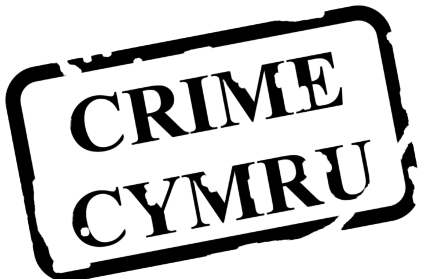



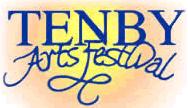






 hich, in 2001, took over the running of the Gun Tower Museum in one of the two forts built to defend the Royal Dockyard. John became the Museum Trust’s first chairman.
hich, in 2001, took over the running of the Gun Tower Museum in one of the two forts built to defend the Royal Dockyard. John became the Museum Trust’s first chairman.





 the British seaside and the phenomenon of nostalgia, through live performance and audio. The audience are invited into a collective and personal journey, as they are given a pair of headphones and an audio device, which invites them into a curated collection of memories gathered from across the country, related to the seaside.
the British seaside and the phenomenon of nostalgia, through live performance and audio. The audience are invited into a collective and personal journey, as they are given a pair of headphones and an audio device, which invites them into a curated collection of memories gathered from across the country, related to the seaside. Madi Stimpson Trio
Madi Stimpson Trio





 es. There will be three competitions this time: an adults short story competition, one for teenagers and one for children. Details to be announced separately in May through the media.
es. There will be three competitions this time: an adults short story competition, one for teenagers and one for children. Details to be announced separately in May through the media.

























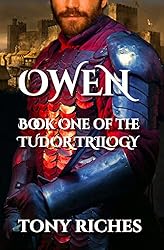
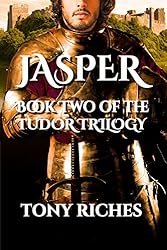
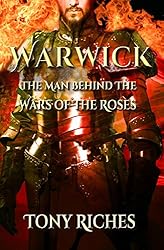
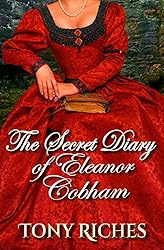
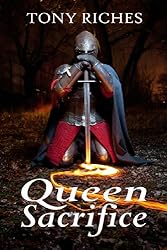

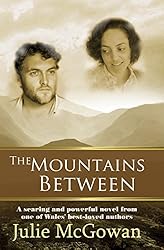
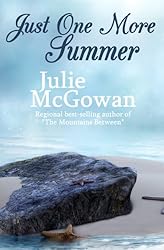
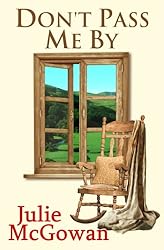
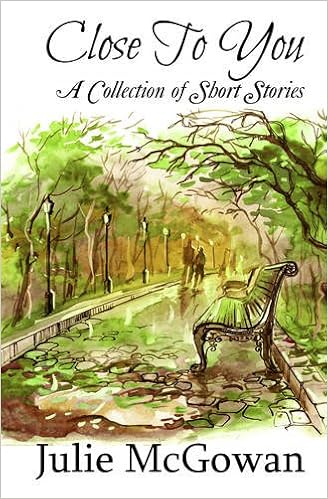










![Ludwika: A Polish Woman's Struggle To Survive In Nazi Germany by [Fischer, Christoph]](https://images-eu.ssl-images-amazon.com/images/I/51fcNSoEH7L._SY346_.jpg)
